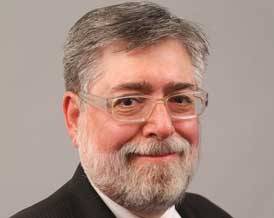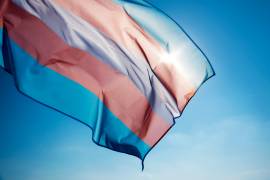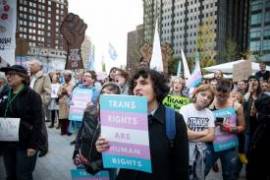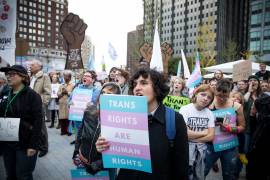
BSA Vote to Allow Gay Scout Leaders Followed a Long and Winding Path
Blog Search
Today’s vote by the National Executive Committee of the Boy Scouts of America (BSA) to end the organization’s decades-long policy and practice of excluding openly gay men from membership in Scouting marks yet another milestone in the march toward LGBT equality in our nation. As a result of this reform, which is to take effect immediately:
- Gay men, bisexuals and lesbians will be able to volunteer and participate in the BSA without having to hide their sexual orientation or their committed relationships;
- The organization will cease discriminating in employment based on sexual orientation;
- Lesbian, gay and bisexual parents will no longer be excluded from being formally involved in Cub Scout dens and Boy Scout troops along with their sons;
- Those previously excluded will be able to reapply for membership; and
- The BSA, as an entity, will drop its policy that conveyed to all boys, regardless of their sexual orientation, that being gay was inconsistent with the Scout oath and law’s principles of being clean and morally straight and instead was an aspect of one’s life that needed to be hidden in shame.
The change will not free the BSA of sexual orientation discrimination altogether, however. As part of today’s decision by the BSA’s governing body, religious organizations that charter local BSA units will still be permitted to discriminate in their selection of BSA unit leaders (such as Scoutmasters, Assistant Scoutmasters and Den Leaders). That’s no small exception: 70% of all BSA troops are sponsored by religious bodies. The organization that sponsors more troops than any other is the Mormon Church, which uses Scouting as its male youth religious organization, automatically enrolling all boys who are members of the church in the BSA. Other dominant religious organizations that also are unlikely at present to allow openly gay and bisexual BSA leaders in their troops include the Catholic Church, the Southern Baptist Church, and the Methodist Church.
Nonetheless, the change in policy is another repudiation of antigay discrimination by the Boy Scouts and another key moment for gay rights as openly gay and bisexual adults will be able to participate in Scouting, even if not in every troop or den. While religiously-run Scouting units may still discriminate and convey anti-gay messages, inter-troop activities, such as the national Boy Scouts Jamboree, will include openly gay and bisexual adults. Gay men, bisexuals and lesbians who run Boy Scout camps or work for Scouting councils will no longer need fear having their sexual orientation lead to their being fired. And those in Scouting units run by exclusionary religious groups also will understand that that discrimination is the act of the sponsoring organization, not the Boy Scouts itself – although, of course, it is something the national BSA (unlike the separate Girl Scouts of America) has decided to accept as part of its operating principles.
The path to today’s change has followed a long and winding trail. I first became involved in seeking to end the BSA anti-gay policy 27 years ago, when I took over a case filed by the ACLU of Southern California on behalf of Tim Curran, a gay man terminated as an Assistant Scoutmaster in the Berkeley, California troop he had joined as a boy, notwithstanding the support of his troop, once the local Scouting Council learned he was gay. When I joined Lambda Legal 20 years ago, I also assisted in Lambda Legal’s Dale v. Boy Scouts of America case, in which the New Jersey Supreme Court held the BSA’s discriminatory acts violated the state’s public accommodations antidiscrimination law, a ruling subsequently reversed by a 5-4 vote of the U.S. Supreme Court, which found that the BSA had a right of “expressive association” to choose its leaders free from government oversight.
Our community never gave up – and the power of continuing the fight for justice and equality is the most important lesson to be learned from today’s development. That the BSA may have had a right to exclude gay people from leadership positions did not make it right for them to do so. The multiple lawsuits filed against the BSA revealed in very human terms the injustice – legal or not – of expelling qualified boys and men from America’s largest youth group based on bias. They also, in effect, “outed” the BSA as a discriminatory organization and contributed to a steady decline in BSA membership that was one of the impetuses for today’s vote.
Litigation is an essential and incredibly important tool in the fight for civil rights, but we must always keep in mind that it is not the only one. Public education, fed by each new story of yet another dedicated individual unceremoniously expelled from an organization after often years of dedicated service, moved public understanding and sympathy for reform. Pressure was put on government, nonprofit and corporate supporters of the BSA to stop chartering Scouting units and to cease their financial support of the organization as long as it continued to discriminate. Many did – including numerous cities, school districts and branches of the United Way, as well as well-known supporters of Scouting like Steven Spielberg. As a result, the BSA in 1991 spun off its in-school scouting and Exploring programs to Learning for Life, a BSA subsidiary that accepted all youth and adults, regardless of sexual orientation. Organizations like Scouting for All, Forgotten Scouts, The Inclusive Scouting Network and Scouts for Equality continued to work both within and outside of the BSA to promote transformation of the policy and certain large Scouting councils and members of the BSA Board also pressed for change. Those and other efforts led the BSA to decide in May of 2013 to stop excluding gay and bisexual boys from membership. Ending such harms to young people was an important development, but it still put gay and bisexual teens at risk of exclusion at the age of 18 if they came out within Scouting and it still sent the message that the BSA viewed being gay as inconsistent with leadership in the organization. Today’s vote moves the organization a giant step further toward ending those harms.
There are many people to thank for their roles in helping BSA shed its former discriminatory policy and practices, including James Dale, Timothy Curran, and the many other courageous lesbian, gay and bisexual members of Scouting who were public about their exclusion and fought back against it in a variety of ways; Evan Wolfson (who led Lambda Legal’s Dale case and argued it to the Supreme Court) and all the other lawyers who used the courts to bring attention to the need for change; David Rice and Scott and Steven Cossa of Scouting for All, Zach Wahls (the straight son of two of Lambda Legal’s clients in our Iowa marriage case) who went on to become the Executive Director of Scouts for Equality, and all the other activists and leaders who fought for reform; companies like Caterpillar, Chase Manhattan Bank, CVS/pharmacy, Fleet Bank, Levi Strauss, Lockheed Martin, Merck & Co., and the Pew Charitable Trusts that withdrew support in protest of BSA’s discrimination; and philanthropists and celebrities like Bill Gates, Carly Rae Jepsen, Madonna, and Train who urged a change in policy. I am proud of the leadership that Lambda Legal and the ACLU also showed on this issue for decades.
One important way of judging a society is how it treats its young people. The story of how America’s largest youth organization became more open and accepting is a remarkable story of incremental change that is not fully over, but that happened because many individuals relentlessly continued to press forward, using every tool they could muster. Like the end to the ban on open military service by lesbians, gay men and bisexuals (and, hopefully soon, transgender individuals), the end to America’s exclusion of LGBT and HIV-positive immigrants, and the end to the exclusion of same-sex couples for marriage, it is another marker of how incredibly far we have come from only decades ago, and how much is possible if we never give up.




